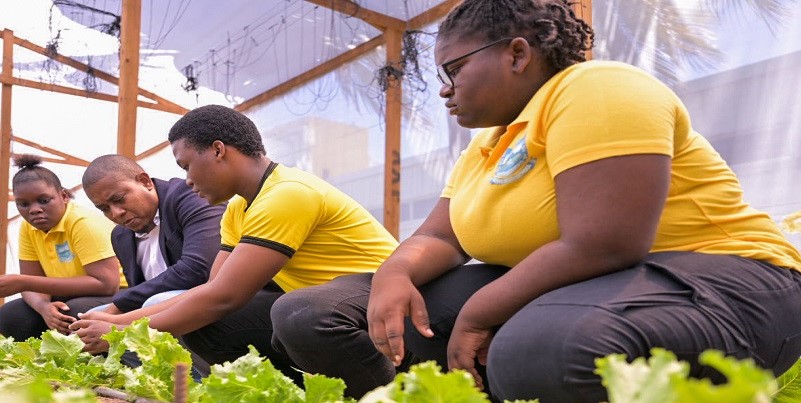Jamaica, known for its rich culture, vibrant music, and stunning landscapes, is also home to a resilient working class that plays a crucial role in the country’s economy. From street vendors and farmers to factory workers and service industry employees, the working class is the backbone of Jamaican society. However, they face numerous challenges, with their economic status shaping their daily lives in profound ways. In this blog, we explore some of the difficulties they encounter, how their financial standing affects their quality of life, and how they find ways to enjoy their free time despite the hardships.
Challenges Faced by the Jamaican Working Class
The working class in Jamaica faces a range of socio-economic struggles that affect their daily lives and long-term well-being. Some of the most significant challenges include:
1. Low Wages and High Cost of Living
Many working-class Jamaicans earn minimum wage or slightly above, which is often not enough to cover basic expenses. The high cost of food, rent, transportation, and utilities makes it difficult for families to meet their needs. Inflation and rising prices further exacerbate the issue, leaving many workers struggling to make ends meet.
2. Job Insecurity and Informal Employment
A significant portion of the workforce is engaged in informal or contract-based jobs, such as street vending or domestic work. These jobs often lack benefits such as health insurance, job security, and pension plans, making it challenging for workers to plan for the future or handle unexpected expenses.
3. Limited Access to Quality Education and Healthcare
While education in Jamaica is technically free, hidden costs like school supplies, transportation, and lunch expenses make it difficult for many working-class families to afford a proper education for their children. Additionally, healthcare can be expensive, with long wait times at public hospitals and private care being out of reach for many.
4. Crime and Violence
Certain working-class communities are disproportionately affected by crime and gang violence. This not only endangers lives but also limits economic opportunities, as businesses may avoid investing in high-risk areas, reducing job availability.
5. Lack of Social Mobility
For many, escaping poverty is an uphill battle. Limited access to capital for small businesses, unequal educational opportunities, and systemic issues keep large sections of the working class trapped in a cycle of hardship.
How Economic Status Affects Their Lives
Economic status directly influences quality of life for the working class in Jamaica. Low wages mean tight budgets, leading to poor nutrition, inadequate housing, and difficulty affording medical care. It also impacts mental well-being, as financial stress often leads to anxiety and depression.
Moreover, economic struggles force many to take on multiple jobs, leaving little time for rest or personal development. Families often have to make tough choices between sending their children to school, paying rent, or affording transportation. This financial strain can also lead to migration, with many Jamaicans seeking better opportunities abroad, leaving families separated.
How the Working Class Spends Their Free Time
Despite these hardships, the Jamaican working class has developed creative and affordable ways to unwind and enjoy life. Leisure activities often reflect the island’s vibrant culture and strong sense of community.
1. Community Gatherings and Socializing
Jamaicans value community and togetherness. Many working-class individuals spend their free time socializing with friends and family, whether at home, on street corners, or in community centers. Lively conversations, domino games, and storytelling are popular pastimes.
2. Music and Dance
Jamaica is the birthplace of reggae, dancehall, and ska, and music is an essential part of daily life. Many working-class Jamaicans enjoy listening to music, attending dancehall parties, or participating in local events featuring live performances.
3. Sports and Outdoor Activities
Football (soccer) is a favorite pastime, with many communities organizing informal matches in open fields or on the streets. Track and field, inspired by Jamaica’s world-class athletes, is another sport that brings people together.
4. Going to the Beach or River
For those living near coastal areas or rivers, spending time by the water is an affordable way to relax and have fun. Groups of friends or families often gather at the beach for a day of swimming, cooking, and socializing.
5. Watching Television and Playing Games
When at home, many enjoy watching local soap operas, sports events, or international movies. Video games and board games also provide entertainment for children and young adults.
6. Participating in Church and Religious Activities
Religion plays a significant role in Jamaican society. Many working-class individuals attend church services, gospel concerts, or community outreach programs, finding spiritual fulfillment and social support.
Conclusion
The working class in Jamaica faces numerous challenges, from financial instability to social barriers that limit upward mobility. However, despite these difficulties, they find ways to enjoy life, stay connected to their communities, and celebrate their rich cultural heritage. Their resilience and determination continue to drive Jamaica forward, making them an indispensable part of the nation’s identity and progress.
What do you think about the state of Jamaica’s working class? Have you experienced similar challenges in your own community? Share your thoughts in the comments below!


